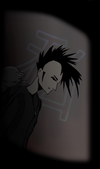Being honest about what you know
It helps to know what you don't know.
Something I learned early in my career is to be honest about what you know. I never want to act as if I know more than I do, because in this business, someone will call you out on it. I lucked out by learning that early on. Happy to say, I didn't have to learn this the hard way.
I've heard of too many people adding things to their resume and trying to sell their knowledge as expert level when all they've ever done is some free training or used some software a few times in their life. It never looks good to have to answer questions that you don't actually know the answer to.
When I put together my resume, I made sure that it only highlighted skills I felt comfortable with. Anything that I wasn't comfortable with was included in a subsection with a header that read, "related interests and hobbies." This included wording more like, "beginner-level knowledge of Python."
That said, I had a GitHub to back it up. It wasn't, and still isn't, great code, but it exists and it shows that I know a bit. Funny enough, at the time, my GitHub knowledge was limited to copy-paste to the GUI. That's changed a bit. I do all that from the cli now.
It's also worth remembering that most interviewers don't expect you to know everything. They just want to get an understanding of your level of knowledge and how you solve problems.
There have been times in job interviews when I didn't know an answer to a question, but rather than try to BS my way through it, I was upfront and said, "I don't know the answer to that, but here is what I would try to do based on what I know about how that works." Then I'd go on to explain what I would do and my logic behind it. The idea at that point wasn't whether I got it right, it was that I had a problem and a possible solution and was able to explain why I thought it would work. To this day, I don't know if it was the answer that the interviewer was looking for, but he accepted it and seemed to think it made sense in the context that I used it.
Sometimes, you won't know the answer, nor will you have the vaguest idea. I'm not afraid to ask additional questions if the interviewer is okay with it (they really should be.). It lets you engage with them a little bit and demonstrates an interest in the subject. I've done this, too. I don't know if it counted against me, but I figured if I didn't know about the subject, I may as well ask them. If anything, I'd gain a little bit of knowledge and read up on it later if it sounded interesting.
